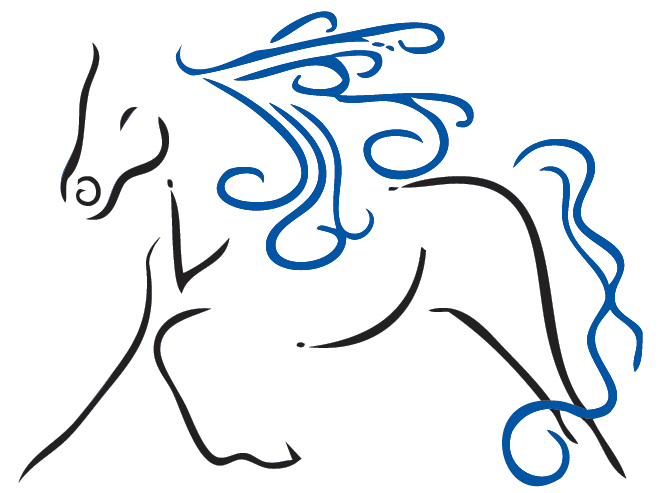Relaxation and why it's so important
If you have read any of my blogs or newsletters, you will know that I talk about relaxation a lot.
So I thought I'd share some of my thoughts on why it is especially important with our horses.
Bandito enjoying the benefits of bodywork during a demo at a local barn
Horses, as prey animals, have an especially developed sense of survival. Nature provided them with speed and agility to counter danger. Their ability to sense danger before it is upon them and to use flight as their first defense has enabled them to survive. If flight is not available, the second option is fight. And this can take on many forms, from subtle bracing to an all-out "I will not die" aggression. And it is this subtle bracing that can prevent horses from letting go of tension and restriction.
You can imagine that being on alert is really a way of life for horses. How many times have you rolled your eyes when your horse spooks at the muck bucket? The same one he has seen for several years and yet, today, it was going to eat him alive! They are primed for survival all the time. It's not something they have to think about like we do. It's an instinctual response developed over thousands of years living in the wild. Looking weak and injured is not an option. Because then the muck bucket will really eat him! So with horses, it is extremely important to prevent a flight or fight response - to get a true read on what is going on in their bodies, he has to be relaxed and calm. Only then can you get a true read on the situation.
My own horse, Chase, is very sensitive. When I met him, he would get scared just walking by any type of whip or crop. If someone carrying one rode by us, we simply just took a very fast sideways detour across the arena. It would take him a long time to "come down" from that adrenaline-filled half a second. His whole body was tense, he was ready to take off at any time, primed for flight or fight. And that tension stayed with him until he relaxed. If he had anything going on, like a sore hock or any tenderness, you would not have seen it when he was in this state. Adrenaline and survival took over in a split second.
Relaxation is not just a mental and emotional state. It has a profound effect on the entire body.
Muscles easily contract and relax. Joints move through the full range of motion. It allows the horse to listen, really LISTEN, to your aids. When there is tension, the horse is not able to learn and respond as easily.
No matter if horses flee or fight, tension of any kind creates an internal brace and can stay stuck in the body. So for our horses to let go of it, we have to stay under the "brace response". In my line of work, a horse bracing is counter-productive. Brace prevents the letting go of tension and restriction.
Chase - very relaxed - allowing me to release tension in his poll
I cannot stress it enough to you. If you hire anyone to perform bodywork on your horse and your horse is tense during the session, it will be counter-productive. Bodywork may sound like you are working on your horse's physical being. But you also address - in EQUAL if not greater measure - his mental and emotional state as well. And it takes balancing all three of those components to be of benefit to your horse. The body is never separated from the mind or the emotions. It works as a whole. And with a sensitive prey animal, you must consider and work with all three components. To get the biggest bang for your buck, your bodywork practitioner must understand not only massage techniques but also the horse as a being, both as a species, and as an individual.
Relaxation is one of the most vital ingredients when working with horses. The next time you get on, see how relaxed your horse is. See how well he listens. And if he is not relaxed, feel the difference as well.
If you are interested in discussing your own unique situation, give me a call or drop me a note.



